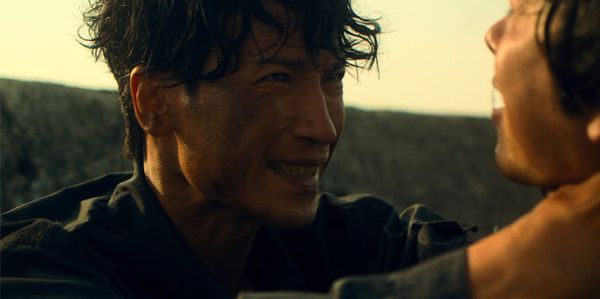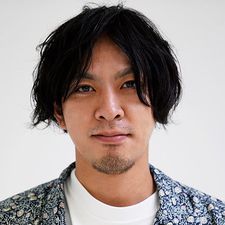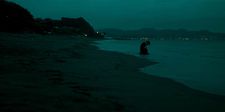 |
| Shuhei Handa on the central role of Kazuma: 'I had to face the challenge and have guts' |
Amber Wilkinson: Can you tell me how you came to the project because there's quite a lot of societal comment happening in this movie. The film is reflecting a situation in Japanese society of shame and blame. But also more widely you're considering the situation around work in Japan and and employees including migrant employees.
Ryuichi Mino: We were not especially aiming to make this kind of societal observation film but we wanted to make a film about about one life of of a man living in Japan with this conflict. We had an image from the film Taxi Driver and wanted to make something similar to it.
AW: Except in Taxi Driver, the Travis Bickle character is very much an anti-hero. Your central character is very much more sympathetic.
RM: But in this period, this character is doing very bad things. If you see him from the wider view, he is just one more bad man. But if you start to look at him closely, you see that he's not that bad. We wanted to show a human being who has been written about badly in the media but who, if you look at him individually, is not necessarily bad.
 |
| Director Ryuichi Mino: 'When we were children, we used to do plays together and this is kind of a extension of what we did in childhood' |
RM: When we were children, we used to do plays together and this is kind of a extension of what we did in childhood - we enjoy working together.
AW: Is it the case in Japanese society that this could happen, that someone could basically kill someone in self-defence and then feel that they were shamed both by their family and by wider society?
RM: Of course, the story in the film is fiction. But we did do research and this can happen. Also, if people are poor enough and come to work in Japan, it can happen that they can't go back to their country. It is actually happening in Japan right now that many foreigners from Vietnam or similar countries are missing in Japan. In this film, we used our imagination about what might happen to these people who are missing.
AW: It feels very real. Like I can interrogation of prejudice and society in that, you know, not only is the boy that the central character facing a prejudice because of something he did, admittedly, but he's still very prejudiced against and so also the migrant workers are facing prejudice.
RM:People in Japan say they don't have prejudices but the Japanese are often not facing the reality and this film is aiming to show the truth of what is happened in Japan.
AW: How was it to play such a complicated complex character. I mean, it must have been a real opportunity to maybe take on such a big character for you.
Shuhei Handa: Of course it was a very difficult role. I had to face the challenge and have guts. But since the Mino brothers are very warm and welcoming, with a very open heart so it felt safe to work with them.
RM:While I was making the film I had the feeling that I was not making a film but actually that I was dealing with the real person, with Kazuma. So I shot the film as though it was a documentary.
 |
| Ryuichi Mino: 'People in Japan say they don't have prejudices but the Japanese are often not facing the reality and this film is aiming to show the truth' |
RM:This factory was renting some space and they borrowed this one space to film in. The background was sounds were the other part of the factory - what was really going on. So it was helping with the documentary approach.
AW:You self-distributed your first film, and now this one is coming more to an international stage. Has it been easier the second time?
RM:The amount of days and money spent was different but how we worked and our main goal was the same.
Are you planning more projects together - especially as you've been doing this your whole lives.
RM:Of course, we want to make the next film but in Japan it is very difficult to sell the film if it's not making profit for the cinema. So we're a bit bit worried whether or not they will have the chance to do the next.
AW:Do you think you'll be sticking to kind of drama that is reflecting social situation in Japan in the future as well?
RM:We're willing to do any kinds of film, we're interested in comedy, horror, anything. I have a lot of ideas but the first thing I wanted to do was about society.





















